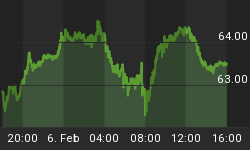Investors should not assume that U.S. equity markets are falling only in sympathy with Europe's financial problems because the spreading sovereign credit problems in Europe are similar to those faced by municipalities, states and the U.S. Government. Regardless of why stock prices are falling, stock market performance and consumer and business psychology are inextricably linked (Figure 1). As stocks fall, so does consumer confidence. Because of the already fragile consumer and weak economy, falling share prices are likely to be even more influential on consumer confidence and economic activity. It should therefore come as no surprise to see tangible economic data in the coming days and months that justifies the recent decline in global stock markets. This data would confirm that the bear market rally that started last March is over.
Figure 1. S&P 500 vs. Michigan Consumer Sentiment
Sources: St. Louis Federal Reserve, Continental Capital Advisors, LLC
Edward Dewey, in his 1947 book Cycles, The Science Of Prediction, explains the correlation between stocks and psychology:
Iron is a tangible commodity, a thing, a visible reality that would exist in some form or other if no man had ever been on earth, or if all men disappeared. But stocks and prices have a different sort of reality. A stock certificate is a slip of paper which depends for its being on states of mind; whatever the assets behind it, only the mind can provide a link between them and the paper. Further, prices also have a basic reality that is purely mental, for - regardless of what the figures be that prices are quoted in - the figures can only be an index to a mental attitude focused as desire. Stock prices reflect, far more than some commentators ever pause to realize, the psychological states prevailing in a community.
The Dow/Gold ratio is a useful tool for measuring stock market psychology. As shown in Figure 2 below, this ratio tracked consumer confidence for the majority of the last five years before diverging at the start of the bear market rally in 2009. Given that the Dow/Gold ratio did not rise with consumer sentiment in 2009, it is likely that the sharp rise seen in stocks and consumer confidence was only a temporary rebound. For more on the Dow/Gold ratio, please refer to our commentary from January 8, 2010 at http://safehaven.com/showarticle.cfm?id-15434.
Figure 2. Michigan Consumer Sentiment vs. Dow/Gold Ratio
Sources: St. Louis Federal Reserve, Continental Capital Advisors, LLC















